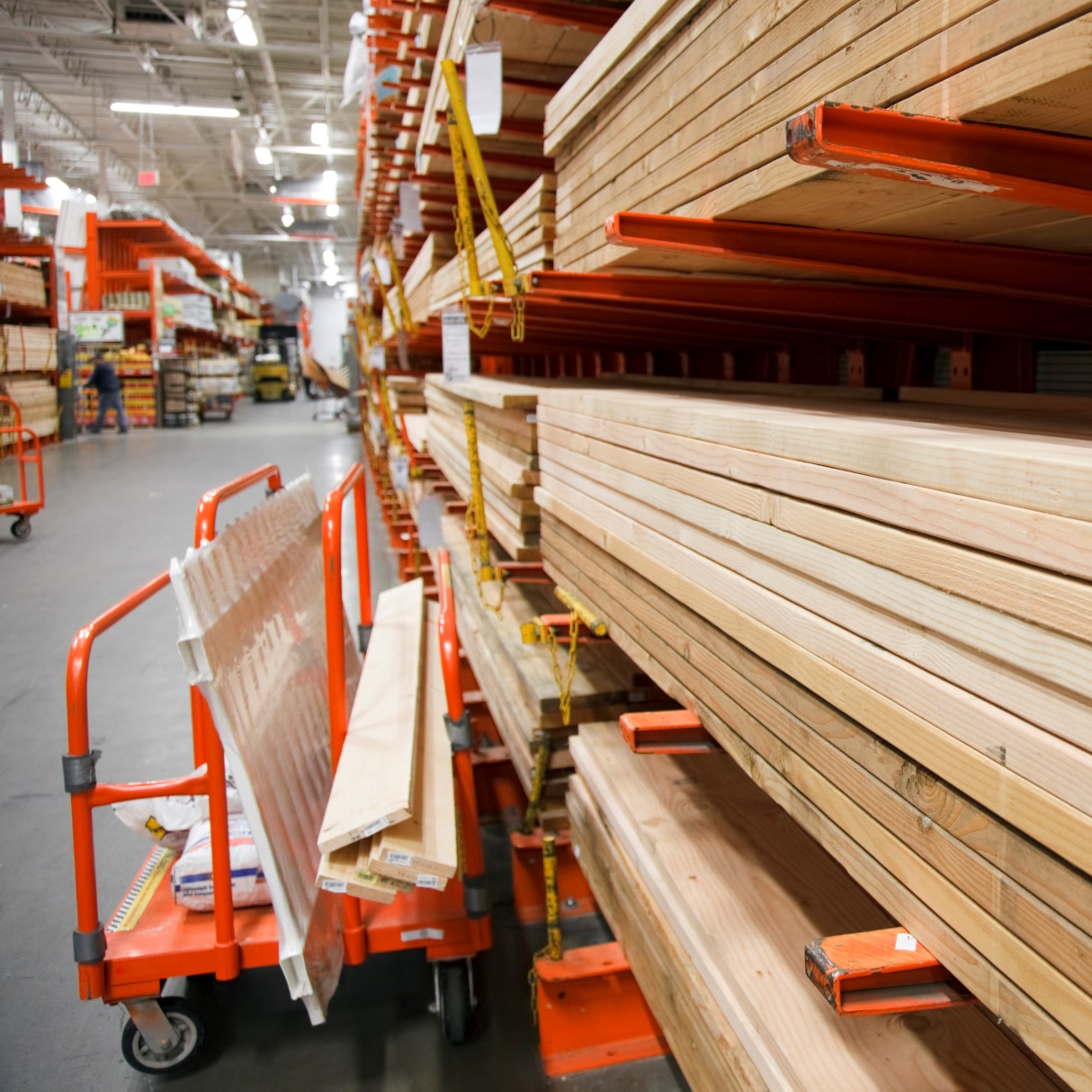Retail
Are You Being Cheated When You Buy Lumber at Home Depot?

Published:
Last Updated:

Home improvement stores Home Depot Inc. (NYSE: HD) and Menard’s are the targets of class action suits filed last week in federal court charging the companies with selling lumber that is “falsely advertised and labeled as having product dimensions that were not the actual dimensions of the products sold.”
Plaintiffs in the case against Menard’s were shocked, shocked, we tell you, to discover that a 4×4 purchased at the store actually measured 3.5″ × 3.5″ and not the “advertised” measurement of 4″ × 4″. The plaintiffs — so far just two residents of Illinois — seek damages, restitution and injunctive relief from Menard’s “for selling products that did not conform to the representations it made to customers.”
Menard’s responded to the lawsuit in March and Home Depot responded earlier this month, both pointing out that the lumber sold in their stores meets federal standards for both dimension and advertising.
In its response, Home Depot schooled the plaintiffs:
Plaintiff’s attempt to turn this accepted lumber naming convention into a class action lawsuit should be rejected. To do otherwise would ignore nearly a century of standardization and disturb an entire industry’s reliance on these lumber names. Home Depot did not breach any warranty or violate any law by using standard industry nomenclature to describe the single piece of lumber Plaintiff purchased.
Home Depot also noted:
That lumber is referred to by its nominal size is not specialized knowledge limited to the lumber industry. Casual handymen, weekend do-it-yourselfers, and anyone who has ever handled, measured, sawed, or nailed a 2×4 knows that it is called a 2×4 though it does not measure precisely 2 inches by 4 inches.
Even if defendants win, it’s a little difficult to see what damage they have suffered. If one planned to replace an existing 4×4, a piece of lumber that actually measured 4 inches by 4 inches would be too big and would require either that all similar pieces be replaced as well or that the do-it-yourselfer buy an expensive planer to bring the one piece of lumber down to 3.5 × 3.5.
Each lawsuit is seeking $5 million (for the entire class, not just the named plaintiffs) plus other penalties, and both Menard’s and Home Depot have requested the court to dismiss the complaints against the stores. That squares with our opinion.
The thought of burdening your family with a financial disaster is most Americans’ nightmare. However, recent studies show that over 100 million Americans still don’t have proper life insurance in the event they pass away.
Life insurance can bring peace of mind – ensuring your loved ones are safeguarded against unforeseen expenses and debts. With premiums often lower than expected and a variety of plans tailored to different life stages and health conditions, securing a policy is more accessible than ever.
A quick, no-obligation quote can provide valuable insight into what’s available and what might best suit your family’s needs. Life insurance is a simple step you can take today to help secure peace of mind for your loved ones tomorrow.
Click here to learn how to get a quote in just a few minutes.
Thank you for reading! Have some feedback for us?
Contact the 24/7 Wall St. editorial team.